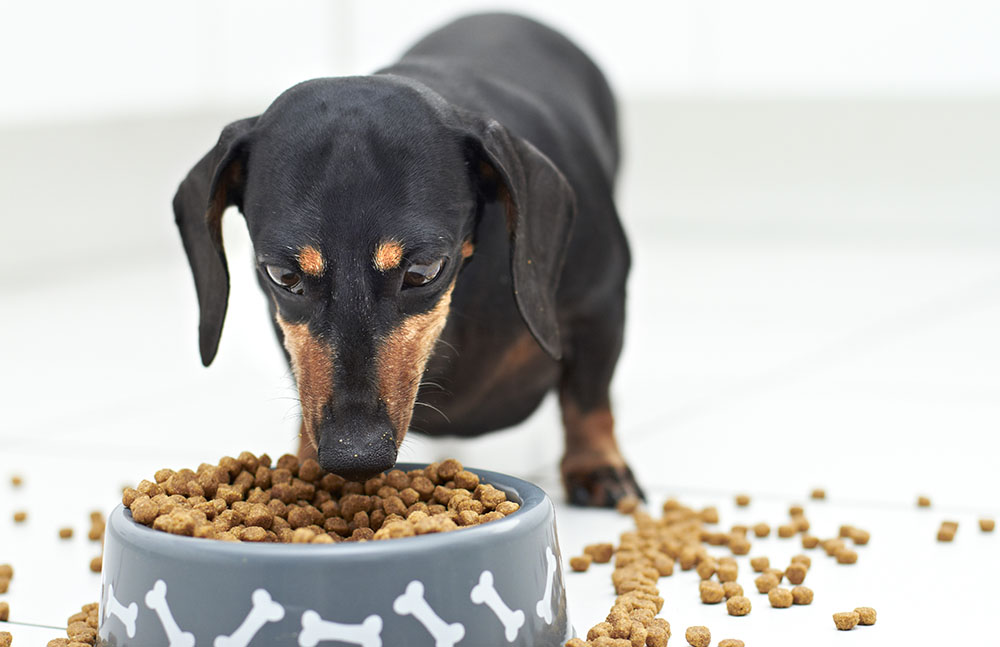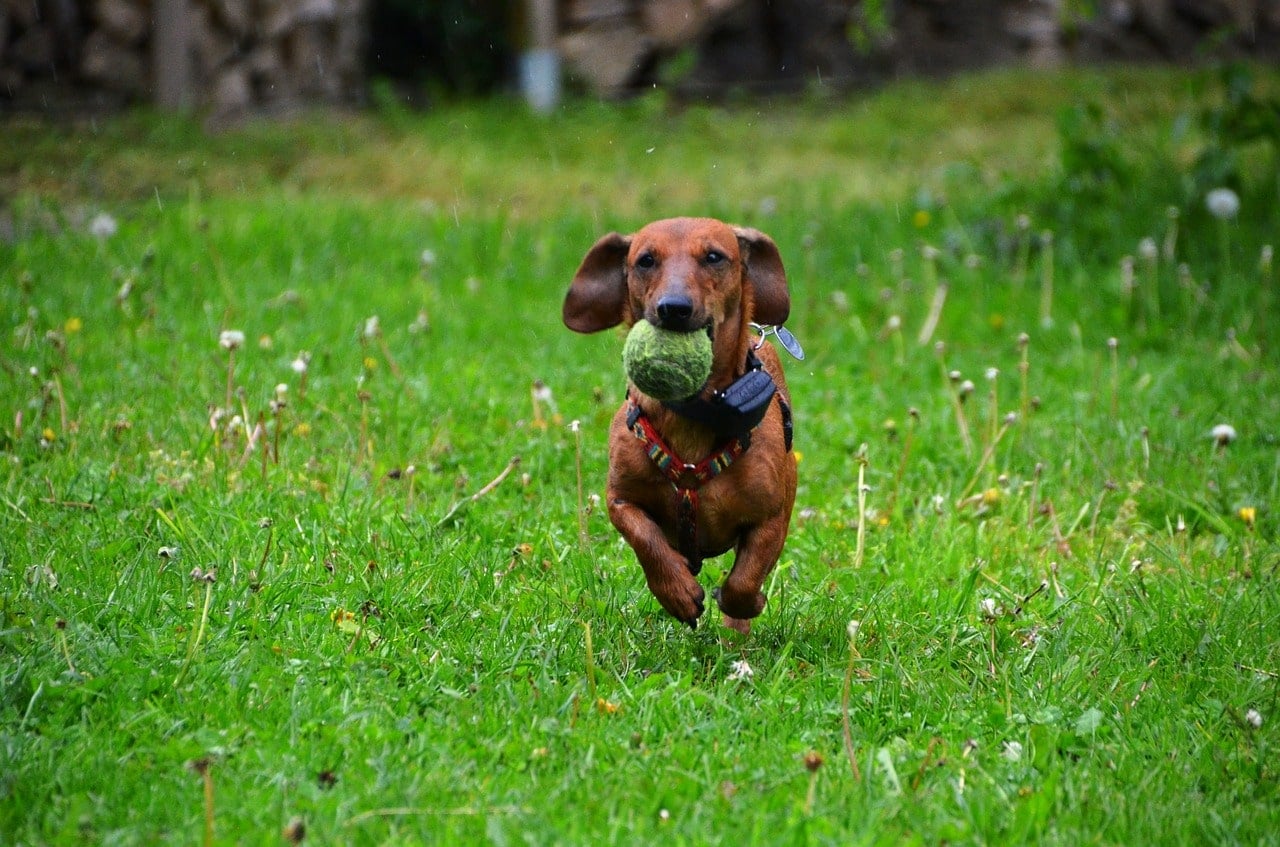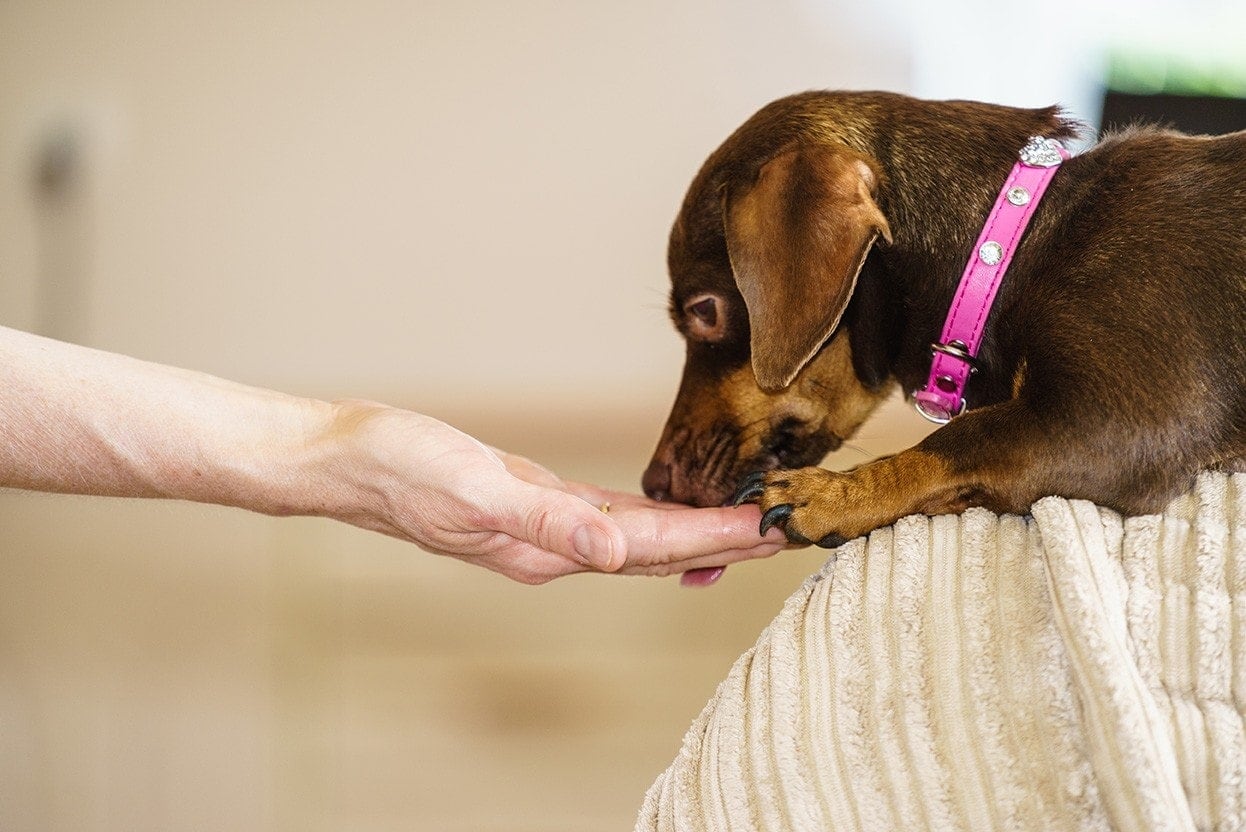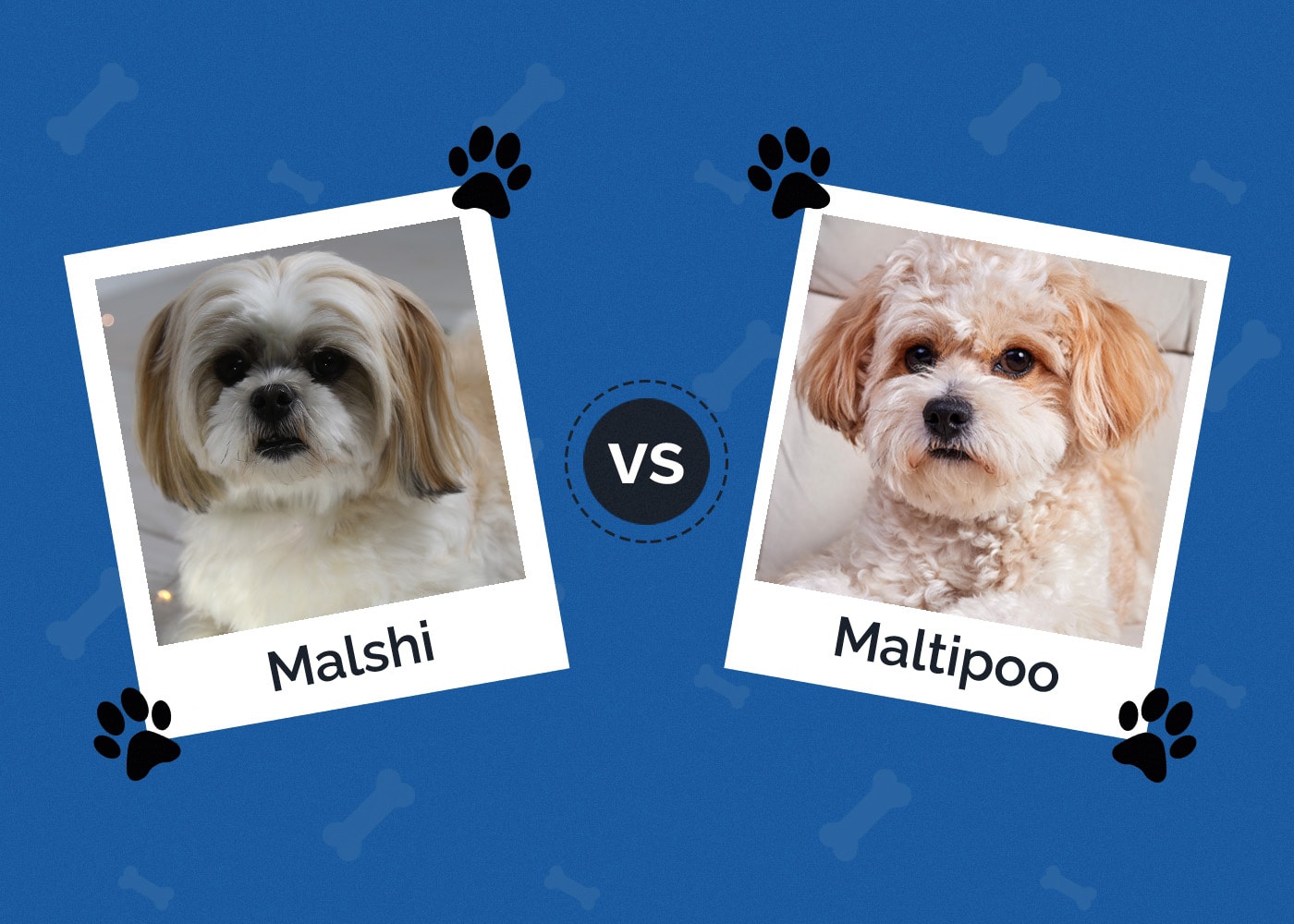Why Does My Dachshund Have Bad Breath? 7 Typical Reasons
By Jordyn Alger
Updated on

We all love to snuggle with our dogs, but bad doggy breath can make cuddle time a chore of endurance. Dachshunds are more prone to bouts of bad breath since their smaller mouths make their oral hygiene issues even more pronounced.
To get back to comfortable cuddles with your dachshund, you must identify the root of their bad breath. Not to mention, bad breath is often a symptom of a more significant health issue.
Read on to learn more about what could be causing such stinky breath and what you can do to solve it.
The 7 Typical Reasons Why Your Dachshund Has Bad Breath
1. Dental Disease
Foul breath is often a symptom of dental disease. This is a common condition among dogs, as more than 80% of dogs 3 years or older are currently suffering it.
Beyond poor breath, there are few noticeable symptoms of dental disease. That is why dog owners must pay attention to even the smallest signs if they think their dog may be experiencing dental difficulties.
How far the condition has advanced will determine the treatment required. Sometimes, it is as simple as having their teeth cleaned by a professional, whereas severe instances may require more intensive care.
The best way to combat dental disease is to prevent it from occurring in the first place. Routine dental cleanings are an effective way to prevent dental disease, as is the use of special dental treats, chews, or dog foods.
2. Diet

If your dog has bad breath, you may need to go directly to the source of it all: his food.
Diet can have a significant impact on your dachshund’s breath. If the food your dog eats is high in carbohydrates, it could cause his poor breath. Carbohydrates are difficult for your dog to break down with saliva because the dog’s saliva does not contain the helpful enzyme that ours does, known as amylase. Without the enzyme, the carbs in your dog’s diet may damage his teeth.
Solving this is as easy as changing his diet. Switch over to dog food with fewer carbs and see if that does the trick.
3. Tooth Root Abscesses
Tooth root abscesses occur when the root of the tooth is infected. The infection starts when the root canal is exposed to harmful bacteria that rot the tooth away.
Infection typically occurs because the tooth enamel has deteriorated due to chewing on hard objects. This includes tough bones, the bars of a dog cage, ice cubes, or even hard toys. If your dog has a tooth root abscess, he may be reluctant to chew on anything due to the pain.
Antibiotics may be prescribed to minimize the infection, but they are insufficient to solve the condition. The only procedures to remedy tooth root abscesses are extractions or root canal therapy.
4. Gingivitis

Gingivitis is the inflammation of the gum line (where the gums come in contact with the teeth). This is often caused by bacteria that enter the small gap between the teeth and the gums. If the infection continues without treatment, your dog may begin to lose teeth.
Luckily, gingivitis is relatively easy to treat and recover from. Your dog will need a professional tooth cleaning followed by routine cleanings at home. Maintaining good oral hygiene is the best way to prevent gingivitis from returning.
5. Unclean Teeth
The cause of your dachshund’s bad breath may be as simple as unclean teeth. When was the last time your dachshund’s teeth were cleaned? If his teeth have never been cleaned, tartar build-up may make his breath smell bad.
It is essential to clean your dog’s teeth regularly and not just to avoid bad breath. Most of the conditions mentioned in this article are linked to poor oral hygiene, and consistent dental care is vital in preventing serious issues.
6. Chews/Chew Toys

Poorly made chews and chew toys could be the culprit behind your dog’s poor breath. As mentioned before, objects that are too hard may lead to tooth rot abscesses or other teeth conditions.
However, the chews or chew toys themselves could also be the direct cause of the poor smell. If the chews are made of rawhide or are old and smelly, they may be making your dachshund’s breath stink.
Changing out your dog’s chew toys is a good way to solve this issue. However, it is also important to supervise your dog when chewing on something hard. If he chews on it for too long, he could open the door to dental complications.
7. Kidney Disease
Kidney disease is one of the graver possibilities behind your dog’s bad breath. Kidney disease occurs when your dog’s kidneys are failing to filter his blood properly. If you suspect that your dog has kidney disease, reach out to your veterinarian right away.
Early signs of kidney disease include increased thirst and urination. As the condition progresses, other symptoms may appear. These include decreased appetite, vomiting, diarrhea, depression, and mouth ulcers.
Treatment for kidney disease is extensive and will vary depending on the severity of the disease. If the condition is treated in the early stages, your dachshund may live a long and happy life.
How to Prevent Bad Breath

Assuming that there is no medical condition behind your dog’s bad breath, such as kidney disease, there are several ways to combat poor oral hygiene.
Regular brushing is the best way to prevent stinky breath. Canine toothbrushes and canine toothpaste are a great first step toward combatting plaque buildup.
Dental treats are another excellent way to prevent bad breath. The treats are often crafted to remove plaque from your dog’s teeth but may also contain ingredients that boost oral health.
There are also dog food formulas that specifically combat dental hygiene issues. Feeding your dog one of these recipes could help maintain oral health and keep his breath fresh.
Conclusion
All body parts are connected, so even minor conditions must be noticed and treated. Bad breath may signify something as simple as dirty teeth, but it could also indicate a much more serious medical concern. If you are concerned for your dachshund’s health, reach out to your vet as soon as possible. There are several ways to prevent bad breath, and hopefully, your dachshund will not send you running when he licks your face in the morning.
Featured Image Credit: congerdesign, Pixabay













